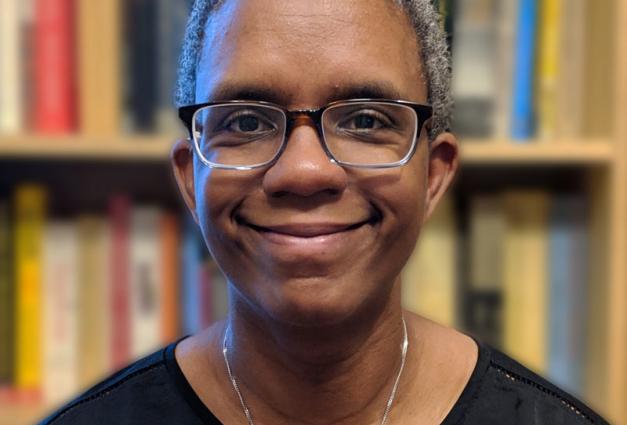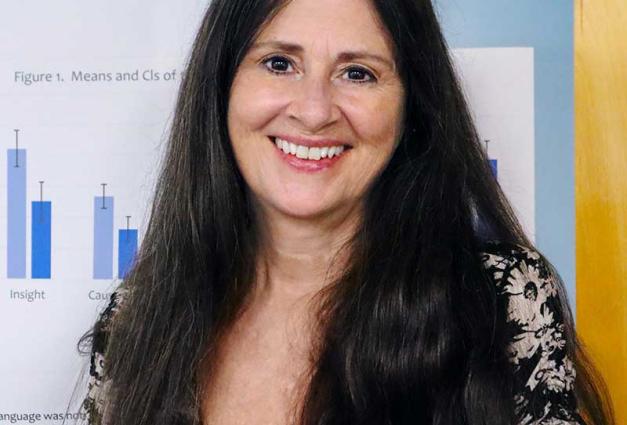Nicholas Epley is the John Templeton Keller Professor of Behavioral Science, and Director of the Center for Decision Research at the University of Chicago Booth School of Business. He studies social cognition to understand why smart people routinely misunderstand each other. He teaches an ethics and happiness course to MBA students called "Designing a Good Life" and is the author of Mindwise: How We Understand What Others Think, Believe, Feel, and Want.
Do you have a favorite conference memory or story?
My Ph.D. advisor, Tom Gilovich, won the Ambady Mentoring Award in 2016. Nalini was a friend of mine who admired Tom and his work. The conference awards ceremony was fantastic. To honor some of his great experiments, many of Tom’s current and former students attended the ceremony wearing Barry Manilow t-shirts fashioned as black sports jerseys with "Gilovich" and our Ph.D. graduation dates printed across the back. Later, we all attended a wonderful dinner together. To be part of a group gathering to honor such a great advisor was the best evening I expect to have at any SPSP conference.
How has your identity affected your career?
Managing social life effectively is a major challenge and I screw up routinely, so much that it seems like part of my identity. But the mistakes I become aware of often spark research ideas. One day on the train ride into my office at the University of Chicago, I looked around and was suddenly very cognizant that the train car was silent. I was in the midst of writing a book describing how our ability to connect minds was a unique human capacity, essential for wellbeing and health, and yet here we were all just ignoring each other. Why was I not being more social? Shouldn’t I have known better? This awareness of what seemed like a mistake sparked an idea that my colleagues and I have now been focused on for nearly a decade. People seem not to be social enough for their own well-being. My career has now changed my identity. After seeing so much data about how surprisingly beneficial it is to form connections with others, I’m much more social than I used to be.
Do you have a favorite course to teach and why?
I created a course called “Designing a Good Life” that I teach to MBA students. The course is an ethics class focused on how to help my students design contexts within their organizations that help people be more ethical than they might otherwise be, in ways that improve organizational success and increase wellbeing. It’s essentially an introductory social psychology class applied to ethics. I think this class allows me to teach ethics in a way that is constructive, actionable, and very memorable. My hope is that all business schools teach ethics with this social-psychological focus in the future.
Is there a recent journal article you've read that you would recommend (and why)?
I recommend, “People selectively overlook subtractive changes” (Adams, Converse, Hales, & Klotz, 2021, Nature). Ben Converse was a Ph.D. student of ours at Booth and it’s wonderful to see your students go off and do great work. This paper is terrific: a really interesting effect that is robust across contexts that you can instantly resonate with. Great ideas in social psychology often have the quality of revealing an effect occurring right in front of your eyes that you never noticed until it was revealed to you, at which point you instantly wonder why you hadn’t thought of it first. Great ideas in psychology, therefore, induce regret. So, read this paper. I promise you’ll regret it.
Outside of psychology, how do you like to spend your free time?
I have a large family with a 15-year span between our oldest son (age 20) and youngest daughter (age 5), so most of my free time for the past two decades has been spent finding activities to do with my kids. High on the list in recent years is doing conservation work out in the woods and prairies of Illinois and Wisconsin. My kids enjoy riding tractors, building brush piles, climbing trees, hunting for mushrooms, helping with controlled burns, and exploring in the woods. Or, at least they tolerate doing these things with me.
What is something you’ve done that no one would expect?
I played four years of Division III college football as an offensive lineman.




